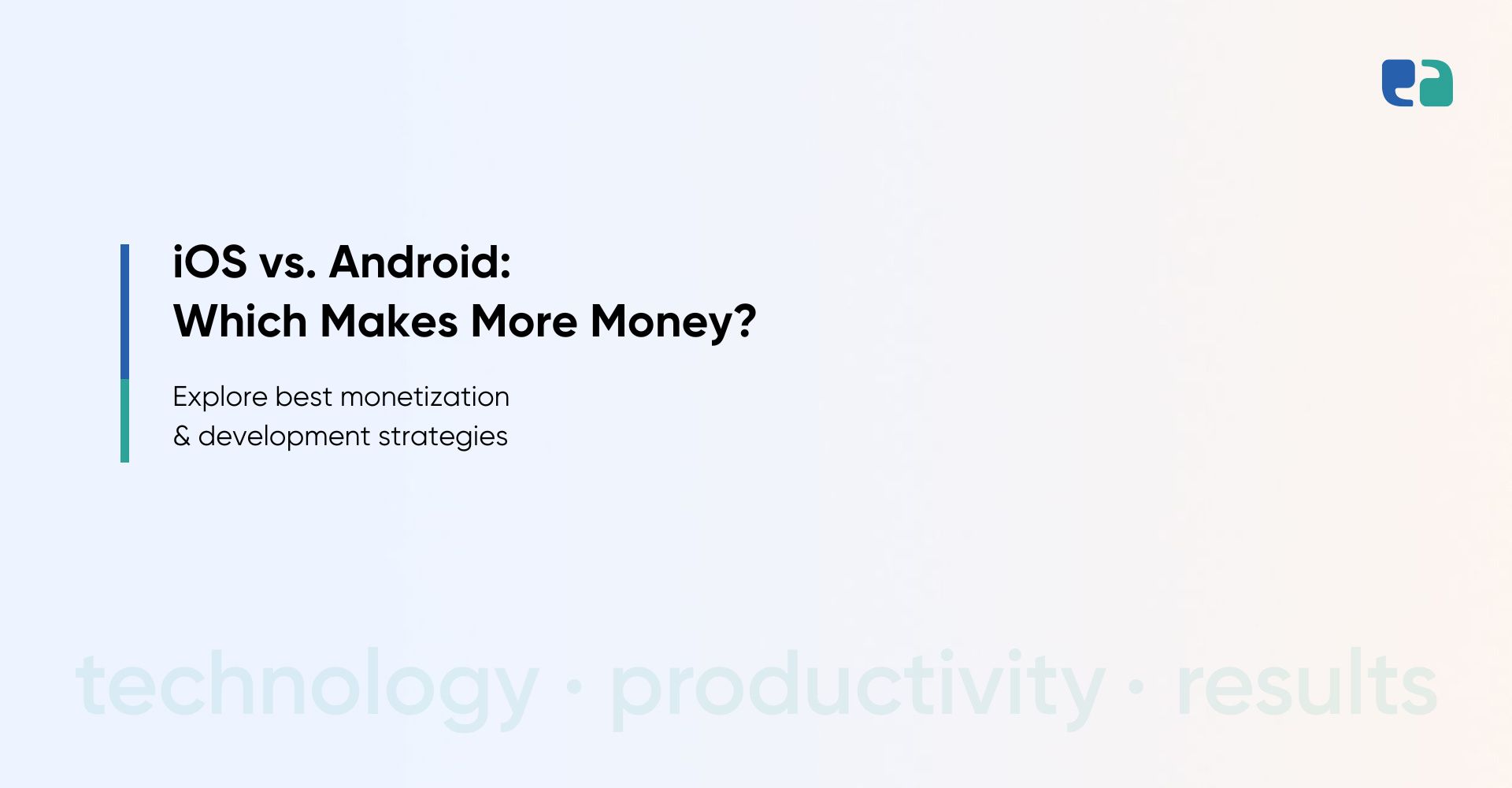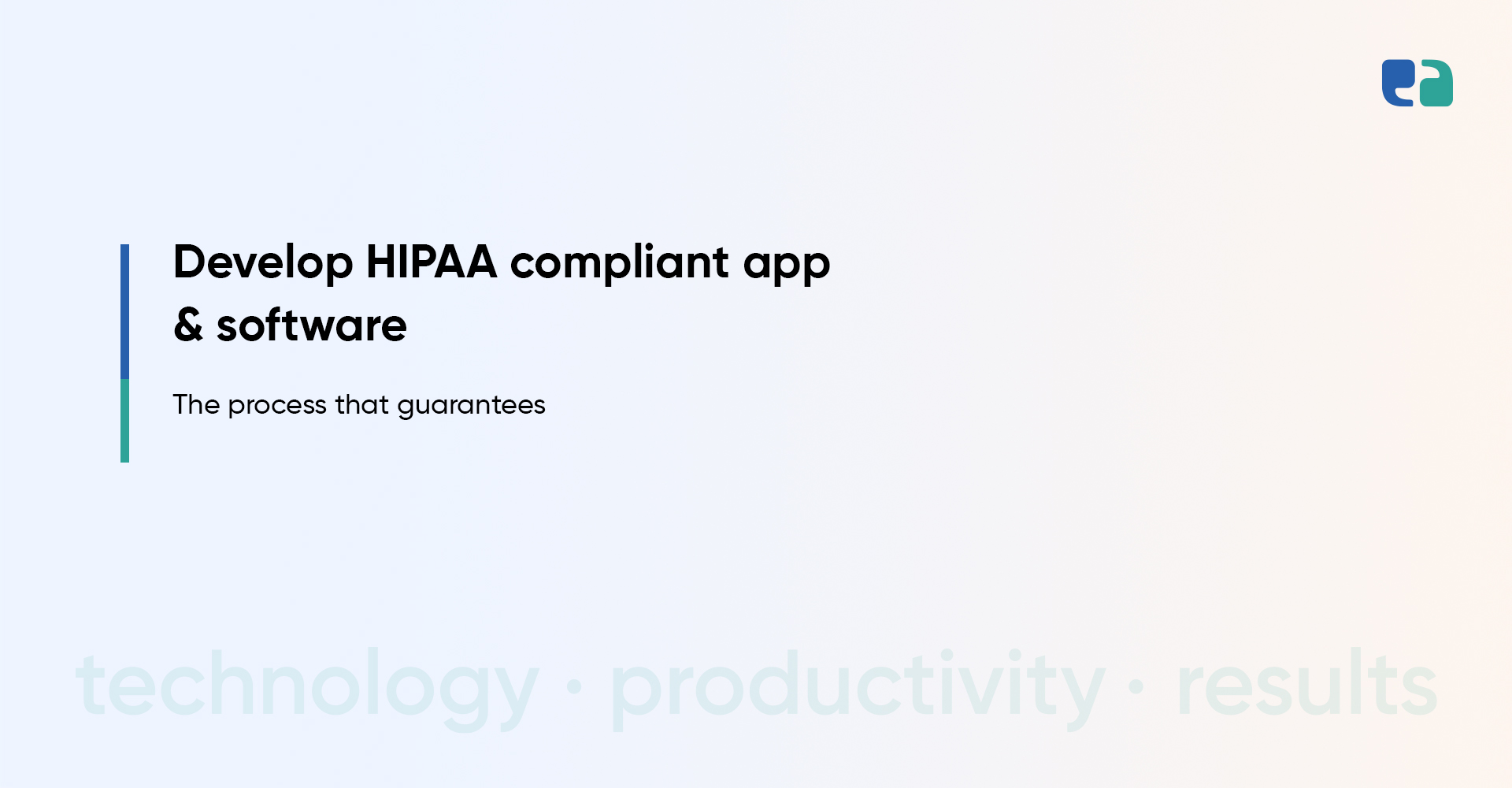Alright, so you’re thinking about building a healthcare app—awesome!
But now comes the big question: iOS or Android?
Which one should you go for?
Trust me, this decision isn’t just about coding; it affects everything—how users experience your app, how secure patient data is, and even whether you meet regulations like HIPAA and PIPEDA.
Here’s the deal: The mHealth industry is booming. Over 90,000 healthcare apps launched in 2020 alone, and by 2030, the market is expected to hit $86.37 billion.
That means huge opportunities, but also big decisions.
If security is your top concern, iOS might seem like the better option with its tight, closed ecosystem.
But if you want a wider global reach and more flexibility, Android has its perks.
Each platform has its strengths and challenges, and choosing the right one can make or break your app’s success.
So, let’s break it down.
In this blog, I’ll walk you through the pros and cons of iOS vs. Android for healthcare app development—market reach, security, cost, compliance, and more—so you can make the best choice.
Market Share & Audience

Choosing between iOS and Android for your medical app? First, let’s talk about market share and who your users might be.
Global Market Share
Right now, Android dominates the global smartphone market with 71.65% market share as of Q2 2024. That’s a huge user base—around 3.9 billion Android users worldwide!
Android is especially popular in middle-income and developing countries because the devices are more affordable.
North American Market Share
But things look different in North America. In the U.S., iOS has a strong presence.
Back in 2021, iOS even held a 51.6% market share in the UK, while 43.8% used Android. This means iOS is more popular in developed regions, but Android still has a big audience.
Who Uses What?
- Android Users: More diverse in terms of income levels and location. Android’s affordability makes it a great option for wider accessibility. It’s also an open-source platform, allowing for more customization—a big plus for healthcare apps with unique clinical needs.
- iOS Users: More likely to spend on apps and engage with health features like Apple’s Health app and Apple Watch. If you’re targeting users who are already invested in health tracking, iOS might be the better choice.
What This Means for Your Healthcare App
- Want a wider reach? Go for Android—it’s more accessible globally.
- Planning a paid app? iOS users are more likely to pay for apps and subscriptions.
- Need deep health tracking? iOS integrates seamlessly with HealthKit and Apple Watch.
- Looking for customization? Android’s flexibility makes it easier to adapt to specific healthcare workflows.
At the end of the day, the best platform depends on your goals. Want to maximize reach? Go Android. Need high-paying, engaged users? iOS might be the way to go.1
Security & Compliance Considerations
When building a healthcare app, security and compliance are non-negotiable.
You’re dealing with sensitive patient data, so your app needs to meet strict regulations like HIPAA, PIPEDA, and GDPR. Both iOS and Android offer security features, but they do things differently.
iOS: The Secure Garden
Apple runs a tight ship with its closed ecosystem, making iOS a secure choice for healthcare apps. Here’s why:
- Less device fragmentation → Fewer iPhone models mean easier security updates.
- Strict app approval → Apple checks apps thoroughly before they hit the App Store.
- Strong software protection → iOS security is tough to crack, making it a safer option for patient data.
Android: The Open Frontier
Android is more flexible, but that openness comes with extra security challenges:
- More devices, more risks → Android runs on thousands of devices, some with weaker security.
- Open-source code → While great for innovation, it can expose vulnerabilities.
- Developers need extra security layers → Things like encryption and secure storage are a must.
Compliance with Healthcare Regulations
No matter the platform, your healthcare app must follow data protection laws:
- HIPAA (USA) → If your app handles patient data, it needs strong encryption and access controls.
- PIPEDA (Canada) → Apps must protect personal health information and give users control over their data.
- GDPR (EU) → Apps must get user consent, allow data deletion, and follow strict security rules.
Ignoring compliance can lead to big fines and a loss of trust. Both iOS and Android can be secure—it all depends on how well the app is built.
iOS vs Android Medical App: Development Cost & Time
Building a healthcare app takes time, money, and smart planning. Whether you choose iOS or Android for your medical, the cost and timeline depend on factors like features, design, and testing requirements. Let’s break it down.
Development Cost
- Android is usually cheaper: It’s open-source and has more developers, which can lower costs.
- iOS developer rates are higher: iOS developers tend to charge more, which can increase costs.
- Features & complexity matter: The more advanced your app (e.g., AI-powered features), the higher the price.
- Cost-saving tips: Start with an MVP (Minimum Viable Product). Also, working with experienced healthcare developers can save time and money.
Estimated Cost? A basic iOS healthcare app can start at $40,000 – $50,000, while feature-rich versions may go up to $100,000 – $150,000. Android pricing varies but tends to be cheaper initially.
Development Time
- Android takes longer: More devices mean more testing, increasing development time.
- iOS is quicker to test: Fewer device variations make bug-fixing faster.
- MVP in 3-4 months? Some teams (like ours) can deliver an MVP in as little as 3-4 months.
The Android Fragmentation Challenge
- More devices = more testing: Android apps must work on multiple screen sizes, processors, and OS versions.
- Compatibility issues: An app may work perfectly on one Android device but glitch on another.
- Slower OS updates: Some Android users run older versions, so apps must support multiple OS versions.
User Experience & Performance
A healthcare app’s success depends on how easy it is to use and how smoothly it runs. iOS and Android follow different design rules, but both aim to create a great user experience.
UI/UX Design
iOS (Apple’s Human Interface Guidelines)
- Clean and simple design with a flat, modern look.
- Easy-to-read text and clear navigation.
- Focus on content, keeping distractions minimal.
Android (Google’s Material Design)
- Uses shadows, colors, and animations for a more interactive feel.
- Bold graphics and typography help highlight key elements.
- Designed to adapt to different screen sizes.
Key UX Considerations for Both
- Simple navigation, especially for elderly users.
- Visually appealing design that matches your brand.
- Accessibility features like larger text for better readability.
- Smooth performance on both phones and tablets.
Performance Factors
- iOS runs smoothly on Apple devices because Apple controls both hardware and software.
- Android apps require extra testing to work well across many different devices.
- Android offers more developer tools, making it easier to build and improve apps.
- Both platforms support high performance when apps are developed with best practices.
Explore the images of the men’s health app we recently developed for one of our clients on iOS and Android platforms.

Integration with Healthcare Systems & Wearables
A modern healthcare app needs to work seamlessly with other systems and devices. This helps collect important health data, improve workflows, and give a complete view of a patient’s health. Both iOS and Android offer strong tools for integration.
iOS Integration
- Apple HealthKit acts as a central hub, collecting health data from iPhones, Apple Watches, and other apps.
- Apple Watch syncs with HealthKit, allowing continuous tracking of heart rate, activity, and more.
- Third-party apps like Nike+ Run Club and MyFitnessPal can connect with HealthKit to share data.
- Potential for EHR integration, making it easier to share patient data with providers.
- Siri support allows users to set medication reminders or find healthcare services using voice commands.
Android Integration
- Google Fit is Android’s version of HealthKit, gathering health data from multiple sources.
- Wear OS smartwatches sync with Google Fit for activity tracking and health monitoring.
- Third-party apps like Adidas Running and Polar Flow connect with Google Fit to enhance fitness tracking.
- Supports EHR integration with FHIR standards, ensuring smooth data sharing across healthcare systems.
- Android apps can connect with a wider range of wearables, including Fitbit, for tracking sleep, heart rate, and steps.
- Cloud storage support ensures data is securely stored and accessible across devices.
Monetization & Business Model
Building a healthcare app isn’t just about great features—it also needs a solid revenue plan.
The way you make money depends on your target audience, platform choice, and the type of services you offer.
How We Can Help You Build a Successful Healthcare App
At SyS Creations, we don’t just build apps—we create secure, scalable, and regulation-compliant healthcare solutions that make a real impact.
With over 10 years of exclusive experience in healthcare IT, we understand the industry’s unique challenges, from data security to seamless integrations and user experience.
Why Partner With Us?
- Expert Development Teams – Our developers are skilled in Kotlin for Android, Swift for iOS, and cross-platform frameworks, ensuring smooth performance on any device.
- Seamless Integrations – We specialize in EHR connectivity (FHIR standards included), wearable device syncing, and cloud-based data sharing for better patient engagement.
- Regulatory Compliance – We ensure your app meets HIPAA, PIPEDA, and other global healthcare regulations, keeping patient data safe and secure.
- User-Centric & Visually Stunning Design – We prioritize intuitive interfaces and accessibility, making apps easy to use for both patients and healthcare professionals.
- Rapid MVP Development – Need to validate your idea quickly? We build minimum viable products (MVPs) fast, so you can test, iterate, and scale efficiently.
- Ongoing Support & Growth – Our partnership doesn’t end at launch. We provide post-launch maintenance, updates, and tech support to keep your app running smoothly.
Whether you’re launching a specialized healthcare app for iOS or Android or need a cross-platform solution, SyS Creations is your trusted partner.



